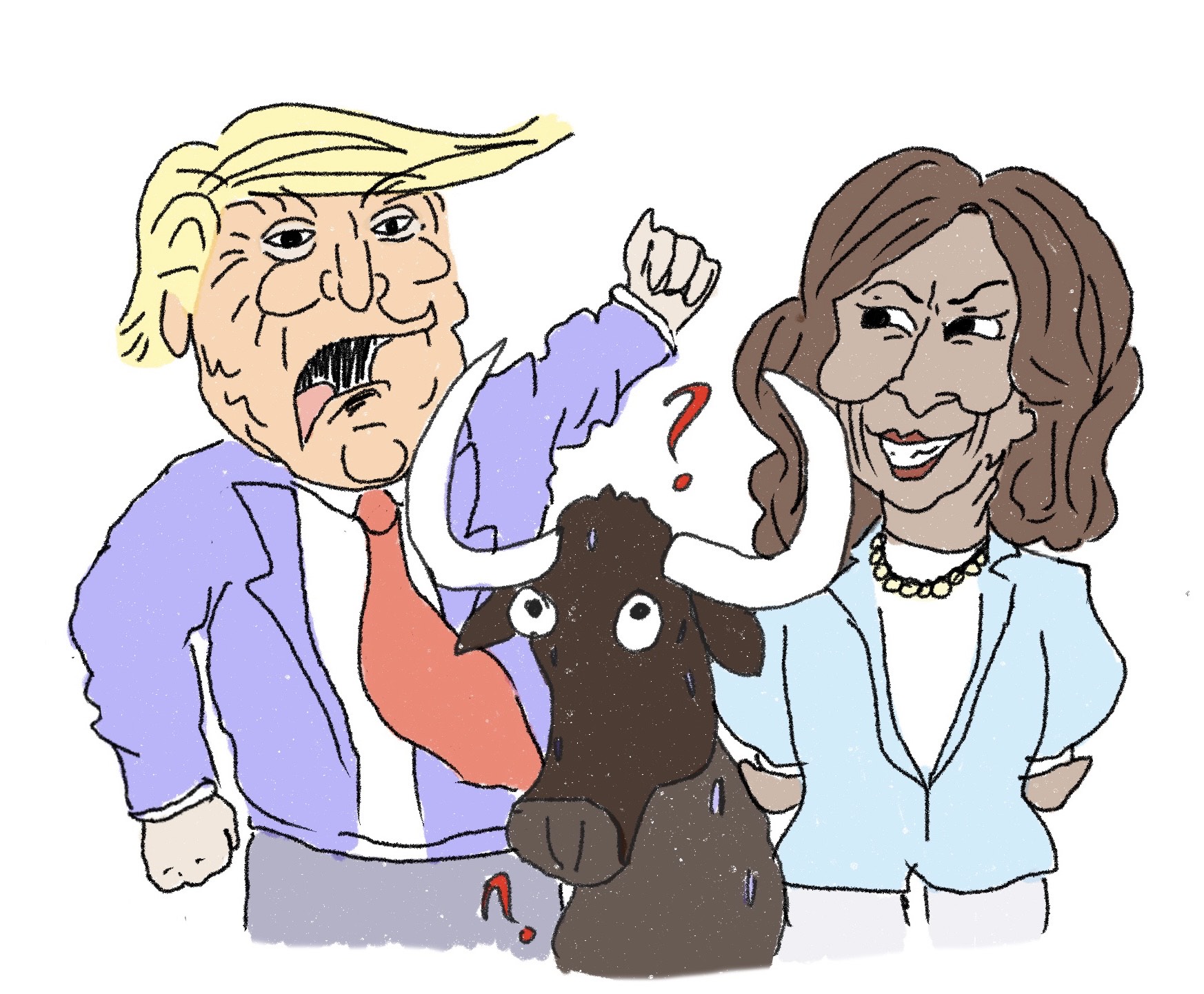By Karl Hays, Co-Managing Editor & Jenna Birdwell, Staff Reporter
Zulema Laguna, a post-baccalaureate medical technology student, comes from a family of lifelong Democrats. Laguna was always open to learning more about other political views but eventually realized she, too, was a Democrat.
“[I align with] obviously women’s rights with childbirth, abortion and being able to decide over your own body is definitely one,” Laguna told The Bulletin. “Another one would be the support that [Democrats] offer toward immigrants, because my parents immigrated here, so that is a major [political issue] for me.”
Election Day is on Tuesday, Nov. 5 – less than two weeks away. Soon voters will head to the polls to cast their ballots for the next president of the United States, and for many people, the choice comes down to Democratic Vice President Kamala Harris and former Republican President Donald Trump.
While students like Zulema are confident in their decision, some Toros are still on the fence. Others told The Bulletin they’re neither interested nor convinced by the two main candidates.
“I am not voting for [Harris] because she is pro-abortion and I am a Christian,” said Ky Tucker, a senior business management student. “And [Trump], I am not voting for a convict.”
Junior psychology student Gisselle De Anda doesn’t know which candidate she’ll support. Neither Harris nor Trump has done a good job of telling people why they should be president, she said.
“I want to know what [the candidates] can do for me,” De Anda explained. “I know at this point, that people have been saying Kamala is the ‘lesser of two evils,’ but it’s both of them. What’s going on?”
Associated Students, Inc. (ASI) hosted a “Know Before You Vote” workshop on Oct. 7 to give students information about the election and help them to better understand the propositions on the ballot this year.
“I think it is important to stay on top of what is happening in the world so that you know you are making the right decision when you do vote,” said senior Hailey Solano.
Eduardo Amezquita, a senior kinesiology student, echoed Solano’s perspective. Amezquita said people should educate themselves about the election, and he hopes people can come together afterward to solve problems.
“We are in the 21st century, this should be a time where we can be able to debate things and find an even ground,” Amezquita said. “There’s no point in the, ‘I am right, you are wrong’ – let’s compromise.”
Some friendly competition
Despite the heated rivalry between candidates and contention over the issues, ASI hopes Toros will find the time to cast their ballots. In the spirit of friendly competition between California colleges and universities, the organization is pushing students to participate in the 2024 Ballot Bowl.
Promoted by the California Secretary of State, the Ballot Bowl is a joint effort by the University of California, the Association of Independent California Colleges and Universities, and the state’s community colleges. The project encourages college students to register to vote.
U.S. elections have historically seen low voter turnout among college students. This changed during the 2020 election, according to the U.S. Census Bureau, when more than half of Americans aged 18 to 24 showed up at the polls. The Institute for Democracy & Higher Education at Tufts University reported that the student voting rate since 2020 has increased from 53 to 66 percent.
There’s no prize for winning the Ballot Bowl, but some CSUDH faculty believe the competition can raise awareness of the election and build momentum for participation.
“Winning [the Ballot Bowl], I think, is secondary to getting the message out,” said Paul Fornelli, a faculty member in the Communications Department.
Fornelli is offering his students extra credit if they can prove they voted, explain why they were unable to vote, or can provide a rationale for why they chose not to vote.
“The argument ‘my vote doesn’t count’ – I can appreciate the feeling at least,” Fornelli said, adding that such sentiments may be true with regard to national or statewide elections.
“If you find yourself at odds with the community that you live in, there’s still a lot of local things that are going on, local initiatives, local school boards, local city council elections, “ Fornelli explained. “That really does make a difference.”

